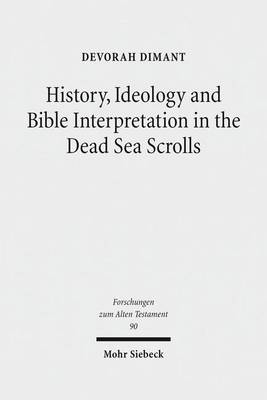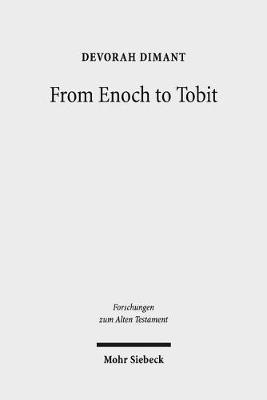Forschungen zum Alten Testament
2 primary works
Book 90
History, Ideology and Bible Interpretation in the Dead Sea Scrolls
by Devorah Dimant
Published 12 February 2014
In this volume Devorah Dimant assembles twenty-seven thoroughly updated and partly rewritten articles discussing various aspects of the Dead Sea Scrolls that she published over the past three decades. An introductory essay written especially for this volume surveys the present state of research on the Scrolls. Dealing with major themes developed in the Dead Sea Scrolls, the author reflects the rapid expansion and change of perspective that has taken place in research on the collection in recent years following its full publication. Among the topics treated are the nature and contents of the Scrolls collection as a whole, the specific literature of the community that owned this collection, the Aramaic texts and the apocryphal and pseudepigraphic works found therein. Each of these chapters contains an inventory list of the texts under discussion. In the article on the entire Scrolls collection she provides an updated inventory and analysis of all the Dead Sea Scrolls. Besides these general surveys, the volume includes discussions of particular themes such as the history of the community related to the Scrolls, its self-image and particular interpretation of biblical prophecies, and its notion of time. In addition, various previously unknown apocryphal works found among the Scrolls are analyzed, such as Pseudo-Ezekiel (4Q385-4Q386,4Q388), Apocryphon of Jeremiah C (4Q385a-4Q390), Apocryphon of Joshua (4Q522), Pesher on the Periods (4Q180, with a fresh edition), and a new edition and interpretation of the Words of Benjamin (4Q548).
Book 114
The volume assembles twenty previously published studies by Devorah Dimant, which have been re-edited, updated, and furnished with an introductory essay written especially for this collection. The studies survey and analyze Jewish works composed in Hebrew, Aramaic or Greek during the Second Temple period, and discuss their contents, ideas, and connections to the Dead Sea Scrolls. Particular attention is paid to central issues, such as the apocalyptic worldview and literature and its relationship to the Dead Sea Scrolls. Among others, specific themes related to the Aramaic Tobit and 1 Enoch are analyzed as well as the links detected between the Hebrew Qumran writings Pseudo-Ezekiel and the Apocryphon of Jeremiah and the later apocalyptic works 4 Ezra and 2 Baruch. The introductory essay provides a general framework and pertinent terminology for discussing the literature in question. Together these essays offer a broad and fresh perspective of the Jewish literary scene in antiquity, with special attention to the one nurtured in the land of Israel.

